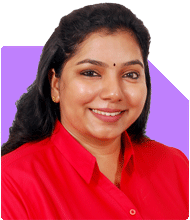Can I retire at 35 with Rs.75 lakhs and monthly expenses of Rs.40,000?
Ramalingam Kalirajan |8230 Answers |Ask -Follow
Mutual Funds, Financial Planning Expert - Answered on Aug 14, 2024
He has an MBA in finance from the University of Madras and is a certified financial planner.
He is the director and chief financial planner at Holistic Investment, a Chennai-based firm that offers financial planning and wealth management advice.... more

I am 35 years of age. have a corpus of 55 lakhs. I am married but No kids. Wife has savings of 20 lakhs. I have a home in tier 3 city. Can i retire with this amount if my monthly expenses are 40K
Understanding Your Current Financial Situation
Corpus Overview: You have Rs. 55 lakhs. Your wife has Rs. 20 lakhs. Together, this makes a total of Rs. 75 lakhs.
Home Ownership: You own a home in a Tier 3 city. This is an asset but might not provide regular income unless rented out.
Monthly Expenses: Your current monthly expenses are Rs. 40,000. This is reasonable, but inflation can change this over time.
Evaluating Early Retirement Possibility
Life Expectancy Consideration: At 35, you likely have a long retirement ahead. If you retire now, you might need to sustain yourself for 50+ years.
Inflation Impact: Inflation can erode purchasing power. Assuming 7% inflation, your current Rs. 40,000 monthly expenses might double in 10-12 years.
Corpus Depletion Risk: A corpus of Rs. 75 lakhs might seem sufficient now, but over 50+ years, it may deplete quickly due to inflation and living expenses.
Income Generation: Without an active income stream, relying solely on your corpus might be risky. Investments that generate regular income can help mitigate this risk.
Potential Income Sources Post-Retirement
Mutual Funds: Investing in actively managed mutual funds can provide better returns than FDs. These funds, managed by experts, can outperform index funds by identifying growth opportunities.
Dividend Yield Funds: These funds focus on companies that pay regular dividends. This can provide a steady income stream to support your monthly expenses.
Debt Instruments: Consider debt funds or bonds for stability. These instruments provide regular income and are less volatile than equities.
Systematic Withdrawal Plan (SWP): An SWP in mutual funds allows you to withdraw a fixed amount monthly. This can help manage your monthly expenses without depleting your corpus too quickly.
Planning for Inflation and Healthcare Costs
Inflation-Protected Investments: Investing in assets that grow faster than inflation is crucial. Equity mutual funds, especially actively managed ones, can offer this growth potential.
Healthcare Costs: As you age, healthcare costs will likely rise. Ensure you have adequate health insurance. Also, consider creating a separate corpus for medical emergencies.
Emergency Fund: Maintain a liquid emergency fund equivalent to 6-12 months of expenses. This provides a buffer for unexpected costs.
Considering Future Life Changes
Potential Family Expansion: While you don’t have kids now, this might change. Children come with additional financial responsibilities, such as education and healthcare.
Housing Costs: Your home in a Tier 3 city might have lower maintenance costs now. However, if you decide to move to a larger city, costs might increase.
Lifestyle Adjustments: Early retirement often requires lifestyle adjustments. If your expenses increase, your corpus might not suffice. It’s important to plan for potential lifestyle changes.
Creating a Sustainable Withdrawal Strategy
Safe Withdrawal Rate: Financial planners often recommend a 4% withdrawal rate. This means withdrawing 4% of your corpus annually. For Rs. 75 lakhs, this is Rs. 3 lakhs annually, or Rs. 25,000 monthly. This is below your current Rs. 40,000 monthly expenses, suggesting the need for a larger corpus or additional income streams.
Balancing Growth and Safety: A mix of equity and debt investments can provide growth while protecting your capital. This balance is crucial for long-term sustainability.
Regular Portfolio Review: Your portfolio should be reviewed regularly with a Certified Financial Planner. This ensures it remains aligned with your goals and market conditions.
Alternative Considerations Before Retirement
Part-Time Work: Consider part-time work or freelancing. This can supplement your income and reduce the strain on your corpus. It also keeps you engaged and active.
Delaying Retirement: If possible, delaying retirement by a few years can significantly boost your corpus. This allows more time for your investments to grow and reduces the number of years you need to fund.
Building Passive Income: Look into building passive income streams. This could include rental income if you have additional property or royalties from creative work.
Investing Your Corpus Wisely
Avoid Real Estate as an Investment: Real estate is illiquid and might not provide regular income. Focus on financial instruments that offer liquidity and regular returns.
Actively Managed Funds Over Index Funds: Index funds track the market and don’t offer the potential for outperformance. Actively managed funds, guided by experts, can identify and capitalize on growth opportunities.
Regular Funds vs. Direct Funds: Direct funds might have lower costs, but they require active management by you. Investing through a Certified Financial Planner in regular funds can provide better guidance and monitoring.
Preparing for the Long-Term Future
Retirement Corpus Growth: Your current corpus might not be sufficient for the next 50 years. Invest in growth-oriented assets to ensure your corpus grows over time.
Tax Planning: Efficient tax planning can help you retain more of your income and returns. This includes choosing tax-efficient investment options and utilizing available deductions.
Legacy Planning: If you wish to leave a legacy for your family, consider estate planning. This includes creating a will and ensuring all your financial accounts have proper nominations.
Building a Robust Healthcare Plan
Comprehensive Health Insurance: Ensure you have comprehensive health insurance that covers hospitalization, critical illnesses, and other medical expenses.
Top-Up Plans: Consider a top-up health insurance plan to enhance your coverage. This is a cost-effective way to ensure you’re covered for larger medical bills.
Long-Term Care Planning: As you age, long-term care might become necessary. Plan for this by setting aside funds or investing in insurance plans that cover long-term care.
Final Insights
Early retirement at 35 is an ambitious goal. While your current corpus is substantial, it may not be enough to sustain you for the next 50+ years without careful planning and wise investments. Consider balancing your desire for early retirement with the need for financial security. This might involve delaying retirement, supplementing your income, or investing more aggressively in growth-oriented assets. Regularly reviewing your financial plan with a Certified Financial Planner will ensure that you stay on track and adapt to any changes in your life or the market.
Best Regards,
K. Ramalingam, MBA, CFP,
Chief Financial Planner,
www.holisticinvestment.in
You may like to see similar questions and answers below
Ramalingam Kalirajan |8230 Answers |Ask -Follow
Mutual Funds, Financial Planning Expert - Answered on May 13, 2024
Ramalingam Kalirajan |8230 Answers |Ask -Follow
Mutual Funds, Financial Planning Expert - Answered on Jan 21, 2025
Milind Vadjikar |1172 Answers |Ask -Follow
Insurance, Stocks, MF, PF Expert - Answered on Jan 26, 2025
Ramalingam Kalirajan |8230 Answers |Ask -Follow
Mutual Funds, Financial Planning Expert - Answered on Jan 28, 2025
Kanchan Rai |576 Answers |Ask -Follow
Relationships Expert, Mind Coach - Answered on Apr 14, 2025
Kanchan Rai |576 Answers |Ask -Follow
Relationships Expert, Mind Coach - Answered on Apr 14, 2025
Kanchan Rai |576 Answers |Ask -Follow
Relationships Expert, Mind Coach - Answered on Apr 14, 2025
Kanchan Rai |576 Answers |Ask -Follow
Relationships Expert, Mind Coach - Answered on Apr 14, 2025
Pushpa R |59 Answers |Ask -Follow
Yoga, Mindfulness Expert - Answered on Apr 14, 2025
Dr Nagarajan Jsk |320 Answers |Ask -Follow
NEET, Medical, Pharmacy Careers - Answered on Apr 14, 2025
Dr Dipankar Dutta |1135 Answers |Ask -Follow
Tech Careers and Skill Development Expert - Answered on Apr 14, 2025
Dr Dipankar Dutta |1135 Answers |Ask -Follow
Tech Careers and Skill Development Expert - Answered on Apr 14, 2025
Ramalingam Kalirajan |8230 Answers |Ask -Follow
Mutual Funds, Financial Planning Expert - Answered on Apr 14, 2025
Ramalingam Kalirajan |8230 Answers |Ask -Follow
Mutual Funds, Financial Planning Expert - Answered on Apr 14, 2025

























